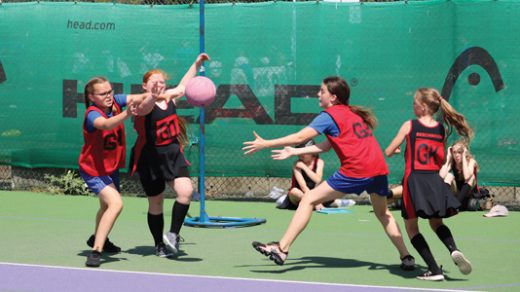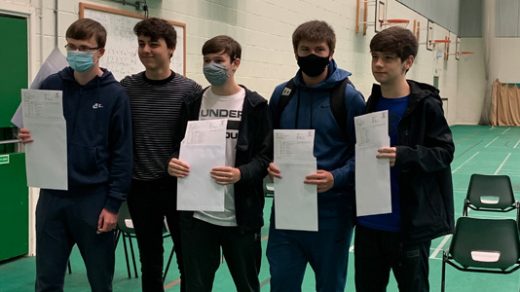Aiming for inclusion

In 2019, St Mary’s College will celebrate its milestone centenary year. It’s an occasion which will not only provide the school with an opportunity to reflect on its 100 years of success, but also a time to look to the future and the difference it can make moving forward.
With just four years to go celebratory plans are already forming, and one key initiative in particular is expected to have a lasting impact – St Mary’s College’s Centenary Fund. A pot of donations in honour of the school’s long-running presence, it will not only be invested into new facilities to further enhance the education pupils receive, but it will also be dedicated to providing scholarships and bursaries.
“We’ll build up a fund and then invest it and effectively use it to enable those who can’t afford [school fees] to effectively come and it’ll pay the fees for them, or part of their fees to part fund them depending on their household income,” explains Michael who, now in his seventh year of heading up St Mary’s College, has been working towards a way of broadening the school’s reach beyond families who can meet the school’s educational costs.
Last year, proposals for the school to widen its access with a bid to become a free school – a move which it was hoped would have moved St Mary’s College ‘from fee to free’ whilst retaining its standards and values – didn’t go ahead.
“The social mix is very important and that was part of the motivation behind the free school bid we did last year,” says Michael. “It was to improve the accessibility to people in South Sefton and Liverpool, and that’s where we got a lot of interest from.”
With a background working in comprehensives, boarding schools and independent schools, this social mix has been apparent throughout the career he has carved out in Stoke-on-Trent and back here in his native Merseyside and surrounding North West.
The former pupil of Maghull’s Maricourt Catholic High School is a chemistry teacher by trade – a subject which he still teaches at A Level – and was also well acquainted with leadership and St Mary’s College’s strong value of “developing the whole person” and any individual talents they may have by the time he took the helm at the long-established Crosby school. He recalls the start of his educational career, which itself was borne out of further exploring a personal strength.
“I was at university and someone asked me if I could help tutor them in maths,” he recalls. “Then they went on to pass, so I thought ‘I could get into this’.”
By no means a one-off success, it prompted Michael into teaching and he eventually climbed the ladder to become a head of science and deputy head at St Anselm’s College in Birkenhead, before securing his first headship at Oakhill College – another independent Catholic school in Clitheroe, Lancashire.
Schooling his own children at St Mary’s College, it was during this time that Michael was subsequently invited to become a governor there.
Having been attracted to take on the principal position by the “feel of the place” and its strong Catholic values, Michael admits that his experience on the school’s governing body had already provided him with a “familiarity” of the inner workings at St Mary’s, making it easier to settle in and carry on with the task in hand, not to mention maintaining the school’s high performance.
Along with an alumni of well known achievers from renowned poet Roger McGough and former director general of the BBC, Lord John Birt to Cardinal Vincent Nichols, the Archbishop of Westminster and head of the Roman Catholic Church in England and Wales; St Mary’s also boasts a strong academic performance with its website highlighting “public examination results are consistently amongst the best in the area, both at GCSE and A Level”.
It’s a trait of the school which Michael believes goes hand in hand with that notion of developing students’ individual talents whether or not they lie in academia. With sport and music having long been important parts of St Mary’s, students are encouraged to take part in a range of lunchtime and after school activities and events and, having co-ordinated Duke of Edinburgh’s Award programmes throughout his time in teaching, Michael is well aware of the benefits such additional interests can have on young peoples’ productivity.
“Those who do more seem to do better,” explains Michael. “They say ‘if you want something doing, ask a busy person’ and pupils who do more activities have learned other skills like multi-tasking”.
As for the curriculum, Michael says the school is “always looking to bring in new subjects and vary the diet that is provided,” and this new academic year will be no different. Following the addition of Latin in the last year, 2015/16 will see pupils learning more cookery skills as opposed to just food technology, to better equip them for later in life and moving away to university.
“It’s about providing innovative education with traditional values,” adds Michael.




